Don't wanna be here? Send us removal request.
Text
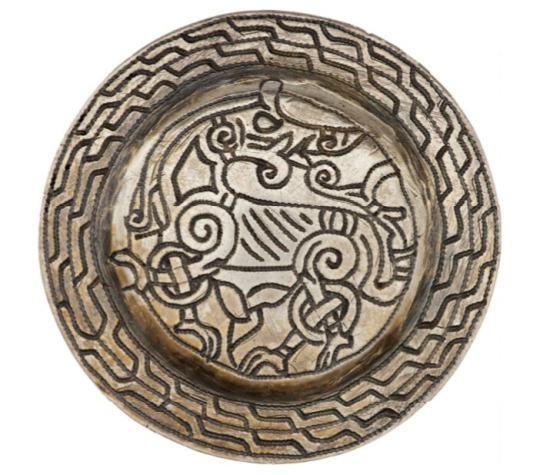
Round Brooch
Viking, 800-1100 CE
Silver round brooch, decorated in Ringerike Style.
227 notes
·
View notes
Text
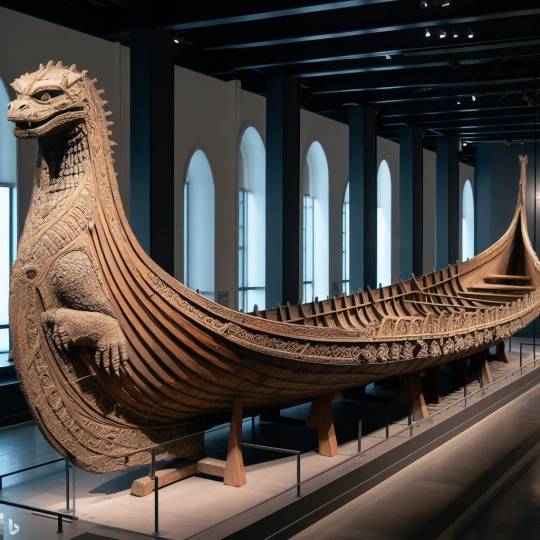
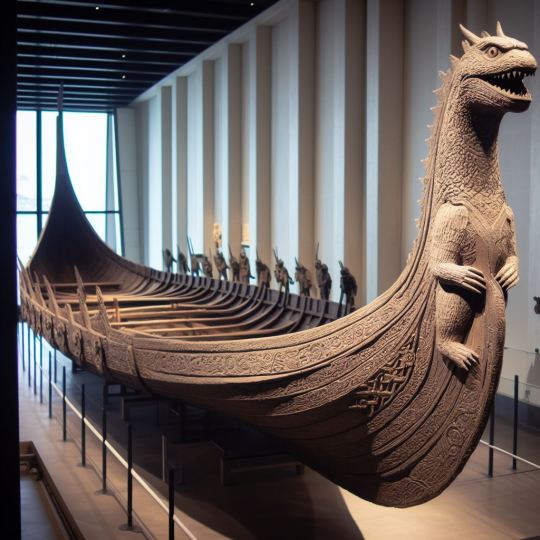
These Viking longships with Godzilla carved into the prow have been restored and reside in the Godzilla in the Viking World museum in Uppsala.
160 notes
·
View notes
Text
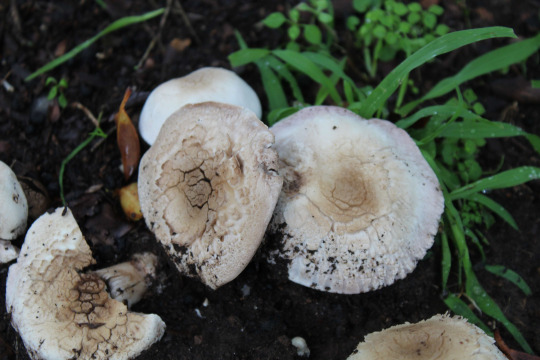

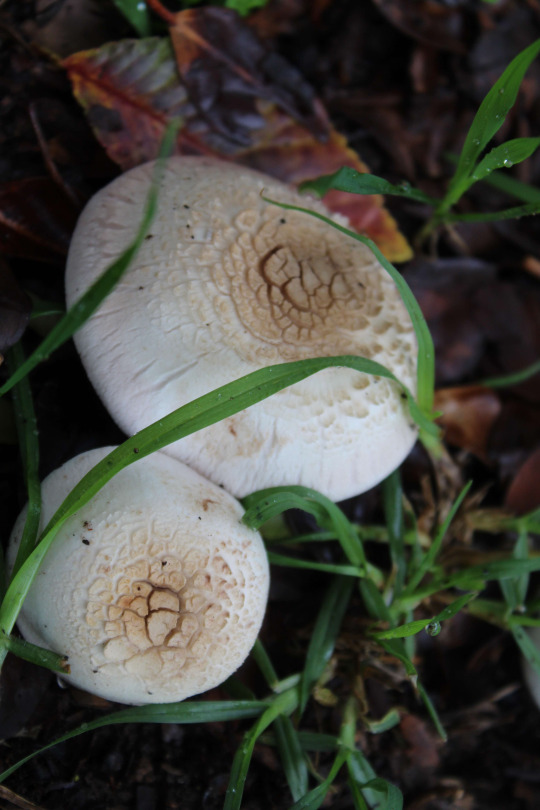
horse mushroom (cracked) // agaricus arvensis<3
i found these.. a while ago? outside my old high school !! they were absolutely massive. i'm planning a post about cracked caps in mushrooms to explain why these looks like that, so keep your eyes out.
78 notes
·
View notes
Text
How to Avoid Psychedelic How-To Guides: A Comprehensive Guide
Introduction: Navigating the Psychedelic Landscape
In recent years, there has been a resurgence of interest in psychedelics for their potential therapeutic benefits and mind-expanding properties. With this increased interest, however, comes a flood of information and guides that may not always have your best interests at heart. Psychedelic how-to guides, in particular, can be misleading, inaccurate, or even dangerous if followed blindly.
How to avoid psychedelic how-to guides is a crucial topic for anyone seeking accurate information and responsible guidance on the safe use of psychedelics. This comprehensive guide aims to equip you with the necessary knowledge and strategies to steer clear of misleading guides and ensure your psychedelic experiences are enriching, safe, and well-informed.
Table of Contents
Understanding the Risks and Pitfalls of Psychedelic How-To Guides
Seeking Reliable and Trustworthy Sources of Information
Recognizing Sensationalism and Misleading Claims
Assessing the Credibility and Expertise of Authors
Prioritizing Scientific Research and Clinical Trials
Validating Personal Experiences and Anecdotal Evidence
Cultivating a Healthy Skepticism and Critical Thinking
Consulting with Knowledgeable and Experienced Individuals
Joining Communities and Forums for Peer Support
Utilizing Educational Resources and Books
Establishing Personal Connections and Mentors
Recognizing the Limitations and Individual Variability
Incorporating Harm Reduction Strategies
Understanding Legal and Ethical Considerations
Emphasizing Set and Setting for Optimal Experiences
Developing Mindfulness and Self-Awareness Practices
Engaging in Integration and Aftercare
Acknowledging the Potential Risks and Side Effects
Learning from Others' Mistakes and Lessons
Embracing a Holistic Approach to Psychedelic Use
Understanding the Risks and Pitfalls of Psychedelic How-To Guides
Psychedelic how-to guides can pose significant risks and pitfalls for individuals seeking accurate information. These guides may present biased perspectives, lack scientific grounding, or overlook crucial safety considerations. It is essential to approach these guides with caution and employ critical thinking skills when evaluating their content.
When encountering psychedelic how-to guides, ask yourself:
Are the claims made in the guide supported by scientific research and evidence?
Does the guide adequately address the potential risks, contraindications, and side effects?
Is the author presenting a balanced perspective or advocating for reckless use?
Are there any conflicts of interest or hidden agendas that may compromise the information's integrity?
Does the guide encourage responsible and informed decision-making?
Are there disclaimers highlighting the limitations of the guide's advice?
By considering these questions, you can begin to navigate the psychedelic landscape more effectively and minimize the risks associated with misleading guides.
Seeking Reliable and Trustworthy Sources of Information
In the age of the internet, it can be challenging to discern reliable sources from misinformation. When it comes to psychedelic information, it is crucial to prioritize sources that have a reputation for accuracy, integrity, and evidence-based content.
To find reliable sources of information on psychedelics:
Consult reputable organizations and institutions known for their work in psychedelic research, such as MAPS (Multidisciplinary Association for Psychedelic Studies) and Johns Hopkins Center for Psychedelic and Consciousness Research.
Look for scholarly articles published in peer-reviewed journals that undergo rigorous scientific scrutiny.
Explore websites and platforms dedicated to harm reduction and education, such as Erowid and The Third Wave.
Follow respected experts in the field of psychedelic research, therapy, and harm reduction on social media platforms for reliable insights and updates.
Engage with academic conferences, symposiums, and webinars that offer presentations by renowned experts.
By actively seeking out reliable and trustworthy sources, you can significantly reduce the chances of falling victim to misleading or harmful psychedelic how-to guides.
Recognizing Sensationalism and Misleading Claims
Psychedelic experiences can be profound and transformative, but it is essential to approach the subject matter with a discerning eye. Sensationalistic language, exaggerated claims, and unrealistic promises are red flags that should prompt caution.
When evaluating a psychedelic how-to guide, be wary of:
Overly positive or negative language that fails to acknowledge the complexities and individual variations of psychedelic experiences.
Claims of instant enlightenment, complete spiritual awakening, or guaranteed therapeutic outcomes.
Lack of acknowledgment of potential risks, contraindications, and necessary precautions.
Statements that promote reckless or unsupervised use of psychedelics.
Promises of quick fixes or shortcuts to profound experiences without the necessary groundwork.
By recognizing and avoiding guides that employ sensationalism and misleading claims, you can maintain a more balanced and realistic perspective on the potential benefits and risks of psychedelics.
Assessing the Credibility and Expertise of Authors
The credibility and expertise of the author(s) behind a psychedelic how-to guide are essential factors to consider when evaluating its trustworthiness. Reputable authors are transparent about their qualifications, experience, and intentions, which can help you gauge the reliability of the information presented.
When assessing the credibility of an author, consider the following:
Is the author an expert in the field of psychedelic research, therapy, or harm reduction?
Have they published peer-reviewed articles or books on the topic?
Are they affiliated with reputable institutions or organizations in the field?
Do they disclose any potential conflicts of interest or financial ties that may influence their perspectives?
Have they been featured in interviews, podcasts, or documentaries that showcase their expertise?
By conducting a brief background check on the author, you can make a more informed decision about whether to trust the information presented in a psychedelic how-to guide.
Prioritizing Scientific Research and Clinical Trials
Scientific research and clinical trials provide invaluable insights into the potential benefits and risks of psychedelic substances. When seeking accurate information about psychedelics, it is crucial to prioritize findings from well-designed studies conducted by reputable researchers.
Consider the following when assessing the scientific basis of a psychedelic how-to guide:
Does the guide reference and cite scientific studies, clinical trials, or meta-analyses?
Are these studies published in reputable peer-reviewed journals?
Do the guide's claims align with the conclusions and limitations of the referenced research?
Does the guide cherry-pick studies to support a particular agenda or narrative?
Relying on scientific research ensures that you base your understanding of psychedelics on the most reliable and up-to-date information available.
Validating Personal Experiences and Anecdotal Evidence
While scientific research provides a solid foundation, personal experiences and anecdotal evidence can also offer valuable insights into the effects and potential applications of psychedelics. However, it is important to approach personal accounts with a critical mindset and consider the limitations of subjective experiences.
When encountering personal experiences in a psychedelic how-to guide, keep the following in mind:
Are the experiences described in the guide representative of a diverse range of individuals or a single person's account?
Do the experiences align with scientific research or provide novel insights?
Are there disclaimers acknowledging the subjective nature of personal experiences?
Does the guide emphasize the importance of integrating personal experiences with evidence-based knowledge?
By validating personal experiences while remaining grounded in scientific research, you can glean valuable information without compromising critical thinking.
Cultivating a Healthy Skepticism and Critical Thinking
In the realm of psychedelics, cultivating a healthy skepticism and employing critical thinking skills are paramount to navigating the vast amount of information available. By adopting an inquisitive mindset, you can assess the validity and reliability of psychedelic how-to guides effectively.
Here are some tips to cultivate a healthy skepticism:
Question the source: Consider the motives, expertise, and potential biases of the author(s) behind a guide.
Seek multiple perspectives: Consult various sources to gain a broader understanding of the topic.
Verify claims with scientific research: Cross-reference the information in the guide with reputable studies.
Look for balanced viewpoints: Guides that acknowledge the complexities and limitations of psychedelics are more likely to offer reliable insights.
Trust your intuition: If something feels too good to be true or raises doubts, listen to your inner voice.
By cultivating a healthy skepticism, you can sift through the vast sea of information and identify trustworthy and accurate psychedelic resources.
Consulting with Knowledgeable and Experienced Individuals
Engaging with knowledgeable and experienced individuals in the psychedelic community can be an invaluable way to gain insights and guidance. Seek out mentors, therapists, or trusted individuals who have extensive experience with psychedelics to complement your knowledge and understanding.
When consulting with knowledgeable individuals:
Choose individuals who have a well-established reputation for their expertise and responsible approach to psychedelics.
Ask for their recommendations on reliable and trustworthy sources of information.
Seek guidance on harm reduction strategies, integration practices, and navigating challenging psychedelic experiences.
Inquire about their personal experiences and the lessons they have learned.
Be mindful of boundaries and ensure that any discussions align with ethical guidelines and legal considerations.
Consulting with experienced individuals can provide you with invaluable firsthand insights and guidance on safely and responsibly incorporating psychedelics into your life.
Joining Communities and Forums for Peer Support
Being part of a supportive and knowledgeable community is crucial for anyone interested in psychedelics. Joining online forums, participating in community events, or attending integration circles can connect you with like-minded individuals who share their experiences, insights, and resources.
When seeking out psychedelic communities:
Look for well-moderated communities that prioritize harm reduction, respectful dialogue, and evidence-based discussions.
Participate actively by sharing your own experiences, asking questions, and offering support to others.
Be mindful of anonymity and personal privacy when sharing sensitive information.
Seek out communities that encourage open-mindedness, diversity, and inclusion.
Being part of a supportive community allows you to learn from others, gain different perspectives, and find a sense of belonging in your psychedelic journey.
Utilizing Educational Resources and Books
Books and educational resources provide a comprehensive and in-depth understanding of psychedelics beyond what can be found in short online guides. Investing in reputable books and educational materials can serve as a solid foundation for your knowledge and decision-making.
Consider the following when selecting educational resources:
Look for books written by experts in the field of psychedelic research, therapy, or harm reduction.
Check reviews and ratings to ensure the book is well-regarded within the psychedelic community.
Prioritize books that present a balanced and evidence-based perspective.
Choose books that cover a wide range of topics, including history, science, therapeutic applications, and personal experiences.
By utilizing educational resources, you can delve deeper into the world of psychedelics and expand your knowledge beyond the limitations of online guides.
Establishing Personal Connections and Mentors
Establishing personal connections with individuals who have extensive experience with psychedelics can provide you with mentorship, guidance, and support throughout your journey. A mentor can help you navigate the complexities of psychedelics, offer insights, and be a source of accountability.
When seeking a mentor:
Look for individuals who have a responsible and ethical approach to psychedelics.
Seek out mentors who align with your values, intentions, and goals.
Inquire about their availability and willingness to provide guidance and support.
Be open and receptive to their feedback and advice.
Establish clear boundaries and expectations for the mentorship relationship.
Having a mentor can provide you with personalized guidance and support, helping you navigate the intricacies of psychedelics more confidently.
Recognizing the Limitations and Individual Variability
It is crucial to recognize that psychedelics are highly individualistic and that experiences can vary significantly from person to person. Understanding the limitations and variability of psychedelics helps you approach them with realistic expectations and avoid generalizations.
When exploring the limitations and individual variability of psychedelics:
Recognize that everyone's experiences with psychedelics will be unique.
Avoid assuming that what works for one person will work for another.
Embrace the idea that there is no one-size-fits-all approach to psychedelic use.
Be open to exploring different substances, dosages, and settings to find what works best for you.
Remain curious and adaptable to the insights and experiences that arise.
By acknowledging and embracing the limitations and individuality of psychedelic experiences, you can approach them with a more open and flexible mindset.
Incorporating Harm Reduction Strategies
Harm reduction strategies aim to minimize the potential risks and maximize the benefits of psychedelic use. These strategies prioritize safety, education, and responsible decision-making to ensure positive and constructive experiences.
Here are essential harm reduction strategies to consider:
Start with lower doses: Begin with lower doses to familiarize yourself with the effects and your individual response.
Set intentions and prepare mentally: Clarify your intentions before the experience and engage in practices such as meditation or journaling to prepare yourself mentally.
Create a safe and comfortable setting: Choose a calm and familiar environment where you feel safe and supported.
Consider a trip sitter: Having a trusted friend or experienced trip sitter present during the experience can provide reassurance and assistance if needed.
Test substances for purity: If sourcing psychedelics independently, consider using drug testing kits to ensure purity and avoid potentially harmful substances.
Allow for integration and aftercare: Allocate time for reflection, journaling, and integrating the insights gained from the experience into your daily life.
By incorporating harm reduction strategies, you can mitigate potential risks and promote positive and transformative psychedelic experiences.
Understanding Legal and Ethical Considerations
Before engaging with psychedelics, it is crucial to understand the legal and ethical landscape surrounding their use. Psychedelic substances are classified differently in various jurisdictions, and legal frameworks can have significant implications for possession, cultivation, and consumption.
When considering legal and ethical considerations:
Research the legal status of psychedelics in your country or region.
Familiarize yourself with the potential legal consequences and risks associated with their use.
Consider participating in legally sanctioned psychedelic therapies or research studies.
Be mindful of ethical considerations, including consent, privacy, and the responsible use of substances.
Support efforts for drug policy reform and advocacy to promote a more informed and compassionate approach to psychedelics.
Understanding the legal and ethical dimensions of psychedelic use empowers you to make informed decisions and engage responsibly with these substances.
Emphasizing Set and Setting for Optimal Experiences
Set and setting play a vital role in shaping the quality and outcomes of psychedelic experiences. "Set" refers to your mindset, intentions, beliefs, and expectations, while "setting" encompasses the physical, social, and emotional environment in which the experience takes place.
To optimize set and setting:
Cultivate a positive and open mindset before engaging with psychedelics.
Clarify your intentions and goals for the experience.
Choose a comfortable and safe physical environment that supports relaxation and introspection.
Surround yourself with trusted and supportive individuals or create a solo experience if that aligns with your preferences.
Minimize external distractions, such as electronic devices, and create a serene atmosphere.
Consider incorporating music, art, or nature into the setting to enhance the experience.
By prioritizing set and setting, you can create an environment that promotes positive and meaningful psychedelic experiences.
Frequently Asked Questions (FAQs)
Q: Can psychedelic how-to guides be entirely trusted? A: While some psychedelic how-to guides can offer valuable insights, it is essential to approach them with caution. Critical evaluation of the author's expertise, scientific basis, and sensationalism is necessary to avoid misleading or harmful information.
Q: How can I differentiate between reliable and unreliable psychedelic how-to guides? A: Look for guides that prioritize scientific research, acknowledge limitations, present balanced viewpoints, and provide references to reputable sources. Avoid guides that make sensationalistic claims, lack scientific backing, or promote reckless use of psychedelics.
Q: Are personal experiences shared in psychedelic how-to guides reliable sources of information? A: Personal experiences can offer valuable insights, but they should be approached with a critical mindset. Consider the diversity of experiences, potential biases, and the alignment with scientific research when evaluating personal accounts.
Q: Where can I find trustworthy sources of information about psychedelics? A: Seek out scholarly articles, reputable websites, educational resources, books written by experts, and guidance from knowledgeable individuals and communities in the psychedelic field. Prioritize evidence-based information and scientific research.
Q: How can I ensure a safe and responsible approach to psychedelics? A: Incorporate harm reduction strategies, establish personal connections with experienced individuals, cultivate a healthy skepticism, and prioritize set and setting. Understanding legal and ethical considerations is also crucial for a responsible approach.
Q: Can psychedelics have potential therapeutic benefits? A: Psychedelics have shown promise in clinical trials and research for various therapeutic applications, including treating mental health conditions like depression, anxiety, and PTSD. However, it is essential to approach psychedelic therapy with proper professional guidance and in legally sanctioned contexts.
Conclusion
In the era of easily accessible information, navigating the realm of psychedelic how-to guides requires a discerning eye, critical thinking skills, and a commitment to personal safety. By prioritizing reputable sources, recognizing sensationalism, and cultivating a healthy skepticism, you can avoid misleading or harmful information.
Remember to consult with knowledgeable individuals, engage with supportive communities, and incorporate harm reduction strategies into your psychedelic journey. By doing so, you can foster a responsible and transformative relationship with psychedelics, maximizing the potential benefits while minimizing the risks.
0 notes
Text
Psychonauts Rejoice!
The World of Psychonauts Explored
Introduction
Welcome to the fascinating world of psychonauts, where the mind becomes a portal to explore altered states of consciousness and unlock profound insights. In this comprehensive guide, we will delve into the realm of psychonautics, examining its history, techniques, substances, and the transformative impact it can have on individuals. Whether you're a curious explorer or seeking personal growth, this article will provide you with valuable knowledge and insights to navigate the realm of the psychonaut.
What is a Psychonaut?
A psychonaut is an individual who embarks on a deliberate journey of self-discovery and exploration through altered states of consciousness. They navigate the depths of their psyche to gain insights, expand their understanding of the universe, and unlock the potential for personal growth and transformation. Psychonauts often utilize various techniques and substances to facilitate these experiences, ranging from ancient practices to modern advancements.
The History of Psychonauts
To understand the roots of psychonautics, we must delve into its intriguing history. From ancient shamanic rituals to the pioneering work of notable figures, the exploration of altered states of consciousness has captivated humanity for millennia. This section will take you on a journey through time, exploring the origins of psychonautic practices and the influential individuals who shaped its evolution.
The Role of Psychonauts in Modern Society
In today's fast-paced and interconnected world, the role of psychonauts has taken on new dimensions. Beyond personal exploration, psychonauts contribute to fields such as psychology, neuroscience, spirituality, and creative arts. This section will shed light on the diverse ways in which psychonauts make valuable contributions to society, pushing the boundaries of knowledge and understanding.
Exploring Altered States of Consciousness
Altered states of consciousness provide gateways to profound experiences and insights. In this section, we will delve into the nature of altered states, their significance, and the various methods employed by psychonauts to induce them. From meditation and breathwork to sensory deprivation and entheogenic substances, we will explore the vast landscape of techniques that enable conscious exploration.
Techniques for Conscious Exploration
Conscious exploration requires discipline, intention, and appropriate techniques. In this section, we will uncover a range of practices employed by psychonauts to navigate altered states of consciousness. We will explore mindfulness, lucid dreaming, hypnosis, binaural beats, and other methods that facilitate deep self-exploration and expansion of awareness.
LSD and the Psychedelic Experience
One of the most renowned substances in the realm of psychonautics is LSD. This section will provide an in-depth exploration of LSD, its history, effects, and its profound impact on consciousness. We will examine the potential benefits, risks, and the role of responsible usage in the context of psychonautic practices.
DMT: The Spirit Molecule
DMT, often referred to as the "Spirit Molecule," holds a prominent place in the realm of psychonautics. Here, we will dive into the world of DMT, exploring its origins, effects, and the unique experiences it can induce. From encounters with entities to transcendent realms, we will uncover the mysteries of DMT and its significance in the psychonautic journey.
Psilocybin Mushrooms: A Journey Within
Psilocybin mushrooms have been revered by cultures throughout history for their transformative properties. In this section, we will venture into the realm of psilocybin, examining its use in psychonautic practices. We will explore the effects, therapeutic potential, and the cultural significance of psilocybin mushrooms in facilitating profound introspection and spiritual experiences.
Ayahuasca: The Sacred Brew
Ayahuasca, the sacred brew of the Amazon, has gained global attention for its powerful visionary properties. This section will take you on a voyage to discover the ancient traditions and contemporary usage of ayahuasca in psychonautics. We will delve into the rituals, healing potential, and the profound insights that can be gleaned from this sacred plant medicine.
The Impact of Psychonautic Experiences
Psychonautic experiences can have a profound impact on individuals, shaping their perspectives, beliefs, and overall well-being. This section will explore the transformative effects of psychonautics on psychological, spiritual, and emotional levels. We will examine the potential for healing, personal growth, and the expansion of consciousness that arises from these experiences.
Psychological and Spiritual Insights
Psychonautics often leads to profound psychological and spiritual insights. In this section, we will delve into the depths of the psyche and explore the insights that can be gained through conscious exploration. From confronting fears and traumas to encountering archetypal symbols and universal truths, we will uncover the transformative power of psychonautic journeys.
Healing and Transformation
Psychonautic practices have been embraced as tools for healing and transformation. Here, we will explore the therapeutic potential of psychonautics in addressing various psychological and emotional challenges. We will delve into the use of psychedelics in therapeutic settings, integration practices, and the emerging field of psychedelic-assisted psychotherapy.
Creativity and Problem-Solving
Psychonautic experiences have long been associated with enhanced creativity and problem-solving abilities. In this section, we will explore the relationship between psychonautics and creative expression. We will examine how altered states of consciousness can unlock new perspectives, foster innovation, and ignite artistic inspiration.
Mystical and Transcendent Experiences
Within the realm of psychonautics, individuals often report encounters with mystical and transcendent realms. This section will delve into the nature of these extraordinary experiences, examining their similarities, cultural interpretations, and their potential implications for our understanding of consciousness and spirituality.
Risks and Challenges of Psychonautic Practices
While psychonautics offers transformative potential, it is essential to acknowledge the risks and challenges associated with these practices. This section will explore the potential psychological, physiological, and legal risks that psychonauts may encounter. We will emphasize the importance of responsible usage, informed decision-making, and harm reduction practices.
Integration and Integration Practices
Integration is a vital aspect of the psychonautic journey, ensuring that the insights gained during altered states are effectively integrated into daily life. In this section, we will explore integration practices, including journaling, therapy, meditation, and community support. We will provide practical guidance for integrating the lessons learned from psychonautic experiences.
Ethics and Responsibility in Psychonautics
As with any exploration of consciousness, ethics and responsibility play a crucial role in psychonautics. This section will delve into the ethical considerations surrounding the use of psychedelics and other techniques. We will explore topics such as informed consent, cultural appropriation, sustainability, and the importance of fostering a safe and supportive community.
The Role of Set and Setting
The set and setting, encompassing one's mindset and the physical environment, significantly influence the psychonautic experience. Here, we will examine the impact of set and setting on the quality and outcome of these journeys. We will explore how intention, preparation, and creating a supportive environment can enhance the safety and transformative potential of psychonautic practices.
The Importance of Experienced Guides
Experienced guides can offer invaluable support and guidance during psychonautic journeys. In this section, we will discuss the role of experienced individuals in facilitating safe and transformative experiences. We will explore the qualities of a knowledgeable guide, the benefits of mentorship, and the importance of establishing trust and rapport within the psychonautic community.
Legal and Regulatory Considerations
The legal landscape surrounding psychonautic practices varies across jurisdictions. This section will provide an overview of the legal and regulatory considerations that individuals engaging in psychonautics should be aware of. We will explore the current legal status of psychedelics, ethical frameworks, and the evolving field of psychedelic research.
The Future of Psychonautics
As interest in psychonautics continues to grow, the future of this field holds great promise. In this section, we will explore emerging trends, scientific advancements, and the potential integration of psychonautic practices into mainstream society. We will discuss the possibilities for further research, therapeutic applications, and the role of education in promoting responsible exploration of consciousness.
Frequently Asked Questions (FAQs)
Can anyone become a psychonaut?
Yes, anyone with a genuine interest in exploring altered states of consciousness and a responsible mindset can embark on the path of a psychonaut. It is essential to approach these experiences with respect, proper preparation, and a commitment to personal growth and safety.
Are psychonautic experiences dangerous?
While psychonautic experiences carry inherent risks, proper preparation, responsible usage, and adherence to harm reduction practices can minimize these risks. It is crucial to be aware of the potential psychological and physiological effects of substances and techniques and to prioritize one's well-being throughout the journey.
Do psychonautic experiences have therapeutic benefits?
Yes, psychonautic experiences have shown promise in therapeutic contexts, particularly in the field of psychedelic-assisted psychotherapy. These experiences can facilitate healing, emotional breakthroughs, and provide new insights into one's thoughts, emotions, and behaviors.
How do I find a trustworthy guide for my psychonautic journey?
Finding a trustworthy guide is essential for a safe and meaningful psychonautic experience. Seek recommendations from trusted sources, explore reputable psychedelic organizations, and engage in open and honest conversations with potential guides to assess their experience, approach, and alignment with your intentions.
Are psychonautic experiences legal?
The legal status of psychonautic practices varies across countries and regions. While some substances and techniques may be illegal in certain jurisdictions, others may be legally accessible under specific circumstances, such as in research or therapeutic settings. It is crucial to familiarize yourself with the laws and regulations in your area.
What is the significance of integration after a psychonautic experience?
Integration is the process of assimilating the insights and experiences gained during psychonautic journeys into daily life. It allows for meaningful transformation and the application of lessons learned. Integration practices, such as journaling, therapy, and mindfulness, support the integration process and help individuals make long-lasting positive changes.
Are there any risks of psychological distress after a psychonautic experience?
While psychonautic experiences can be transformative and beneficial, some individuals may experience psychological distress or challenges during or after these experiences. It is important to prioritize self-care, seek support from trusted individuals or professionals if needed, and approach these experiences with caution and proper preparation.
Can psychonautic practices be combined with traditional spiritual practices?
Many psychonauts integrate their explorations with traditional spiritual practices, such as meditation, yoga, or indigenous rituals. The combination of psychonautic practices and established spiritual traditions can deepen the exploration and provide a broader context for personal growth and spiritual development.
How can psychonautics contribute to creativity and problem-solving?
Altered states of consciousness can enhance creativity and problem-solving abilities by expanding perspectives, stimulating divergent thinking, and facilitating the exploration of unconventional ideas. Psychonautic experiences can unlock new insights, overcome creative blocks, and inspire innovative solutions.
Are there risks of addiction associated with psychonautic practices?
While psychonautic practices themselves are not inherently addictive, some substances used in these practices may carry addictive potential. It is crucial to approach these experiences with caution and responsible usage to minimize the risk of developing addictive patterns or dependencies.
Conclusion
In conclusion, psychonautics offers a fascinating journey into the depths of consciousness, providing opportunities for personal growth, spiritual insights, and transformative experiences. By embracing responsible usage, integrating the lessons learned, and fostering a supportive community, we can navigate the realms of altered states with wisdom and respect. As the field continues to evolve, the future of psychonautics holds tremendous potential for further exploration, therapeutic applications, and the expansion of our understanding of human consciousness.
1 note
·
View note
Text

STEP INTO INFINITY
1 note
·
View note


